Diving Sites in Port Blair



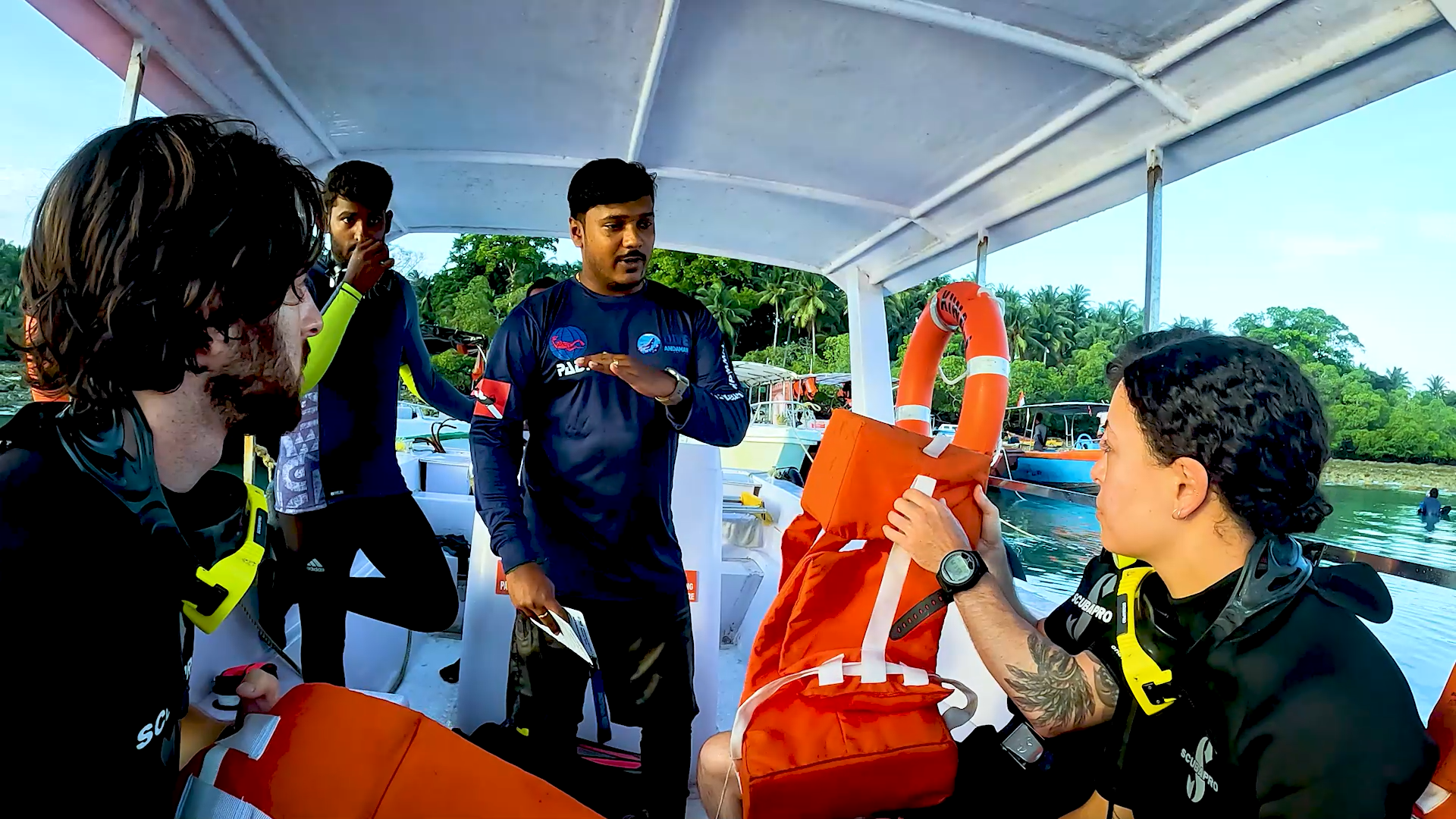
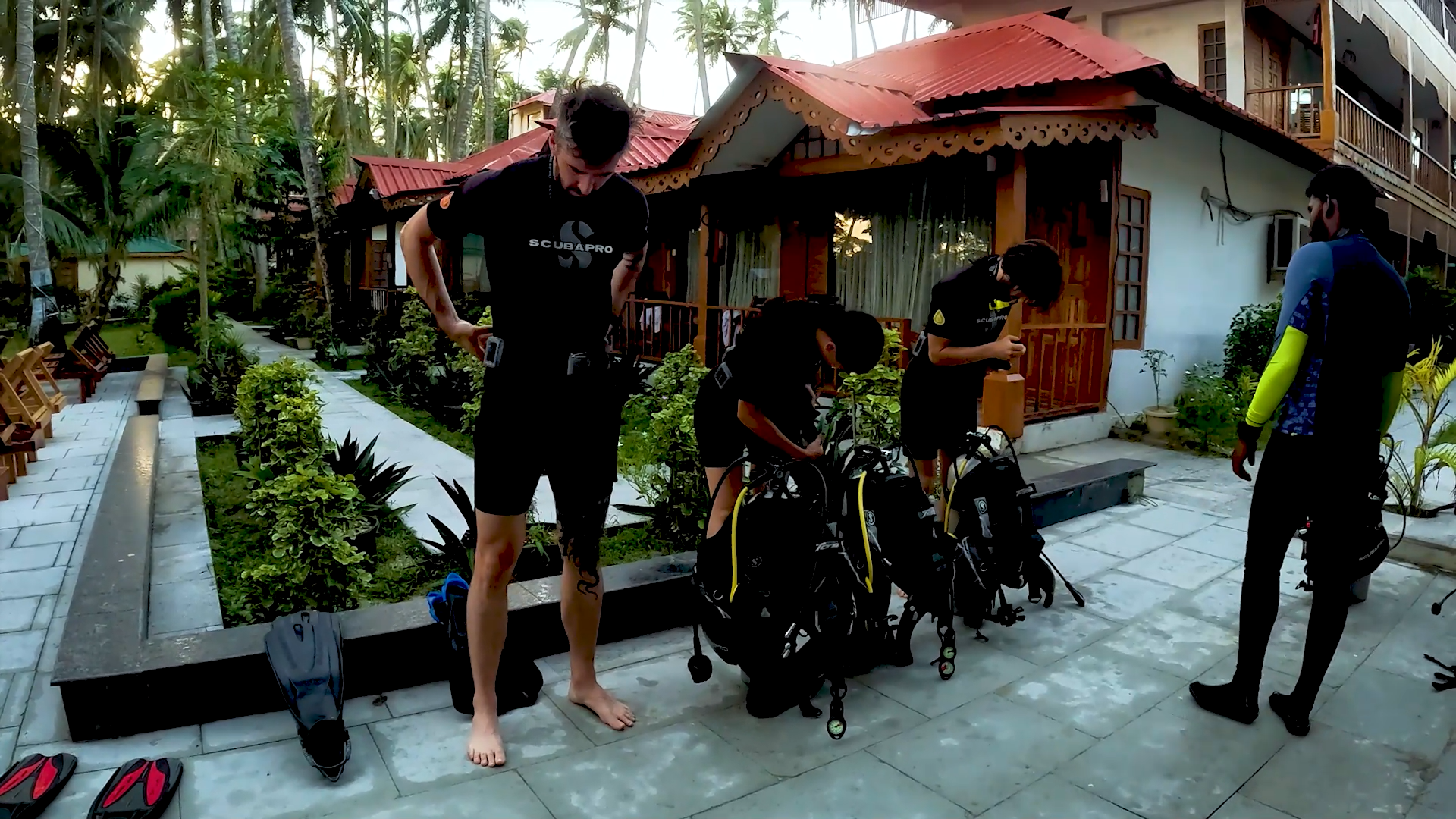
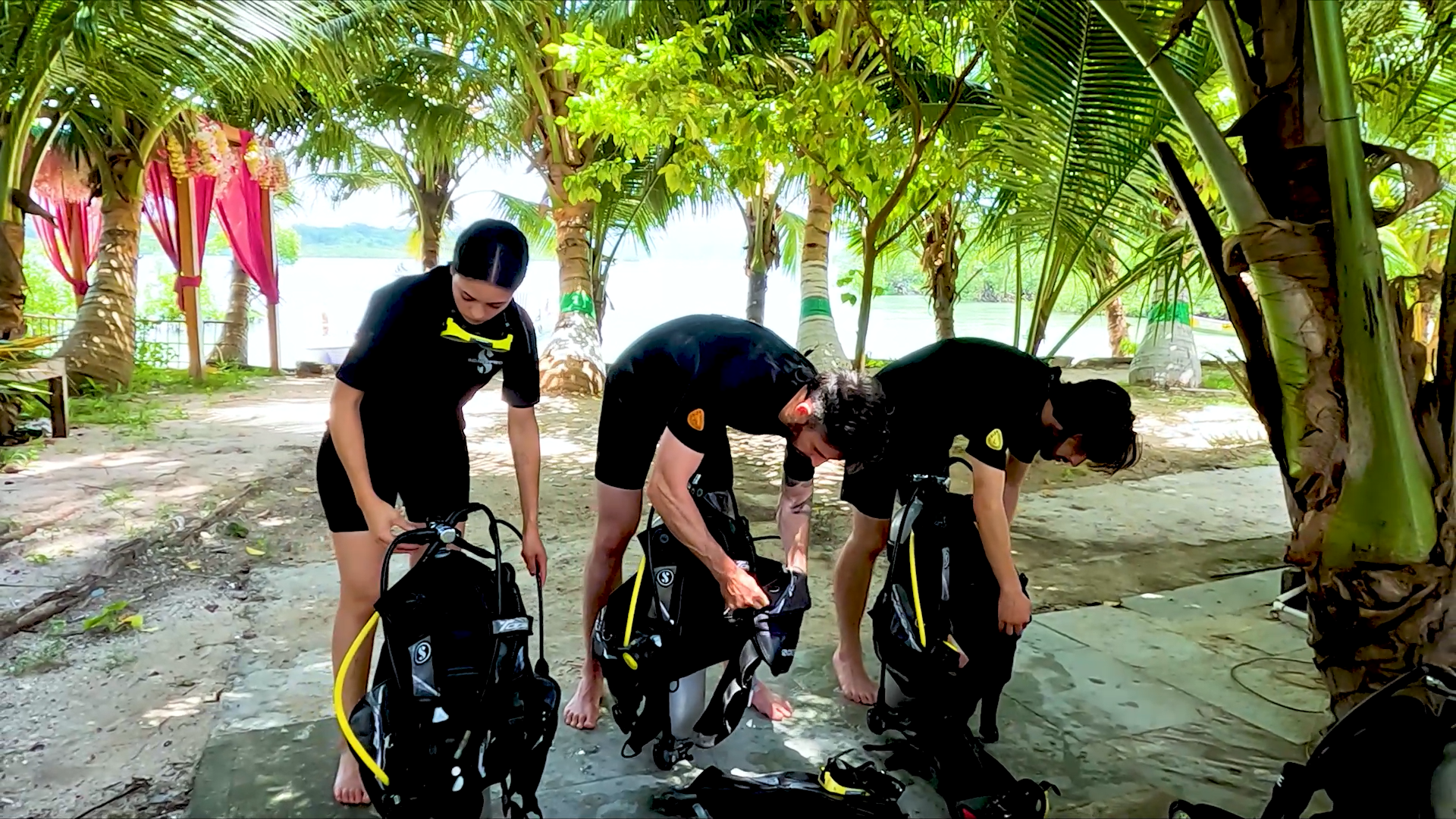
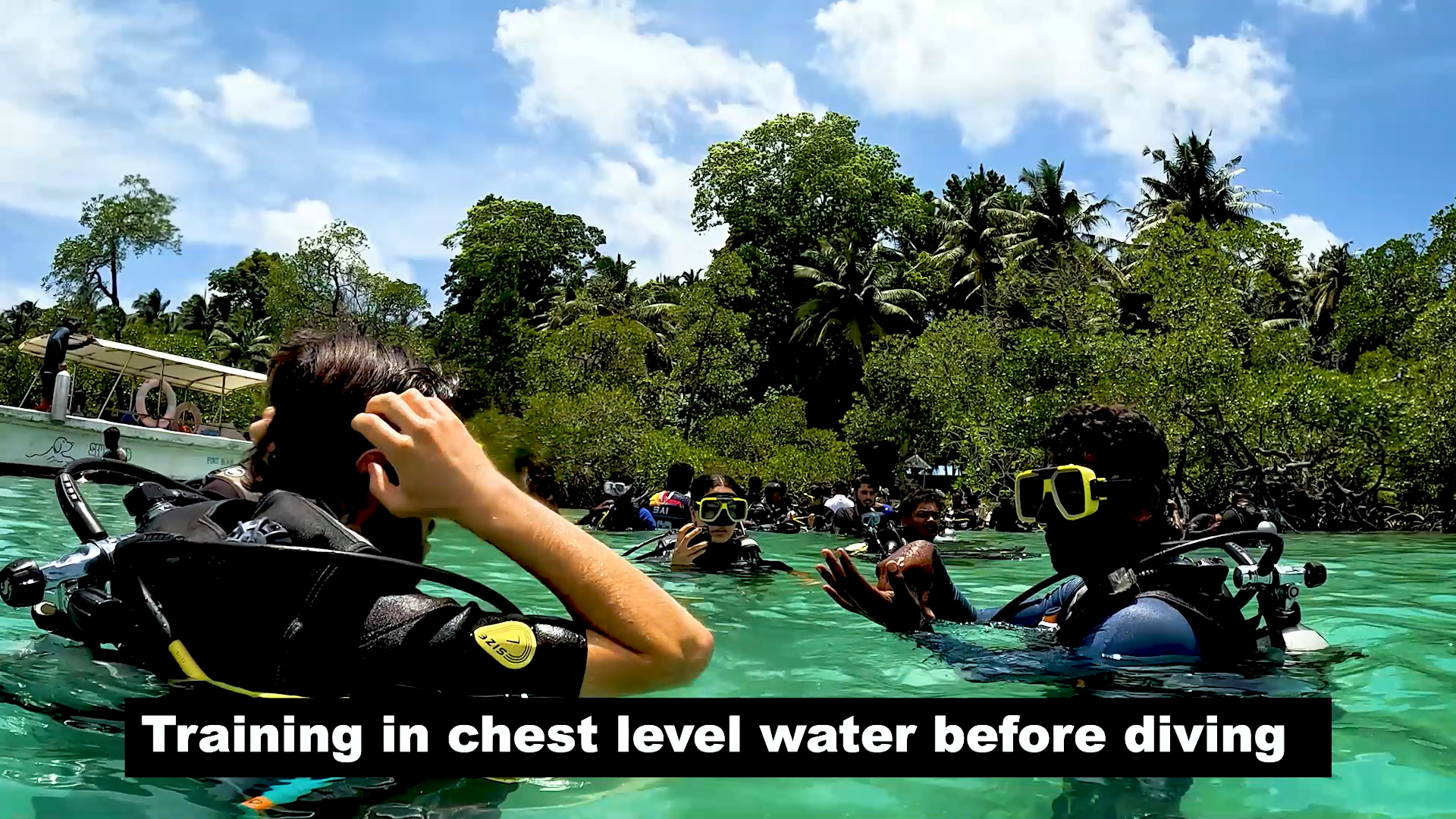
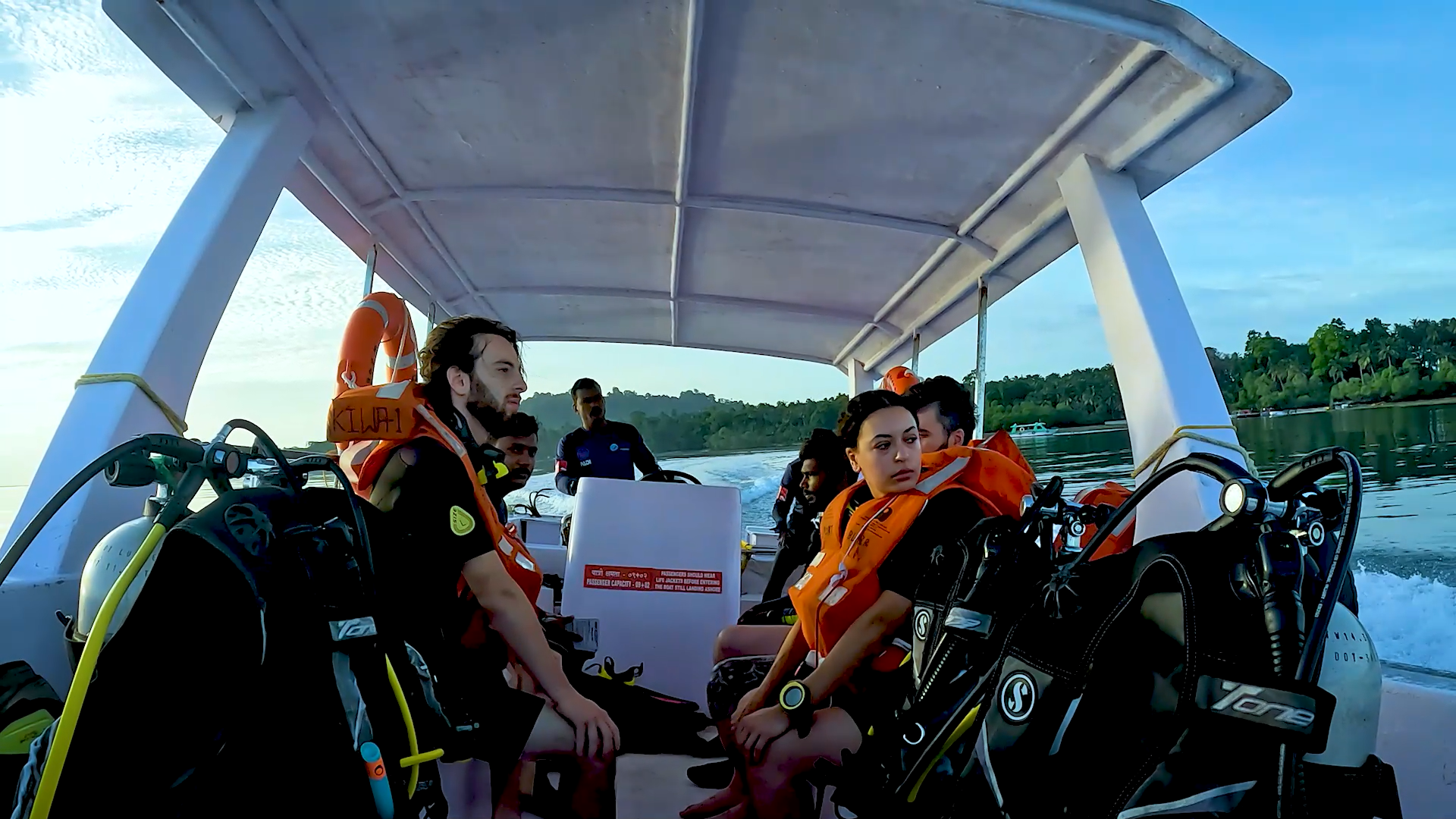
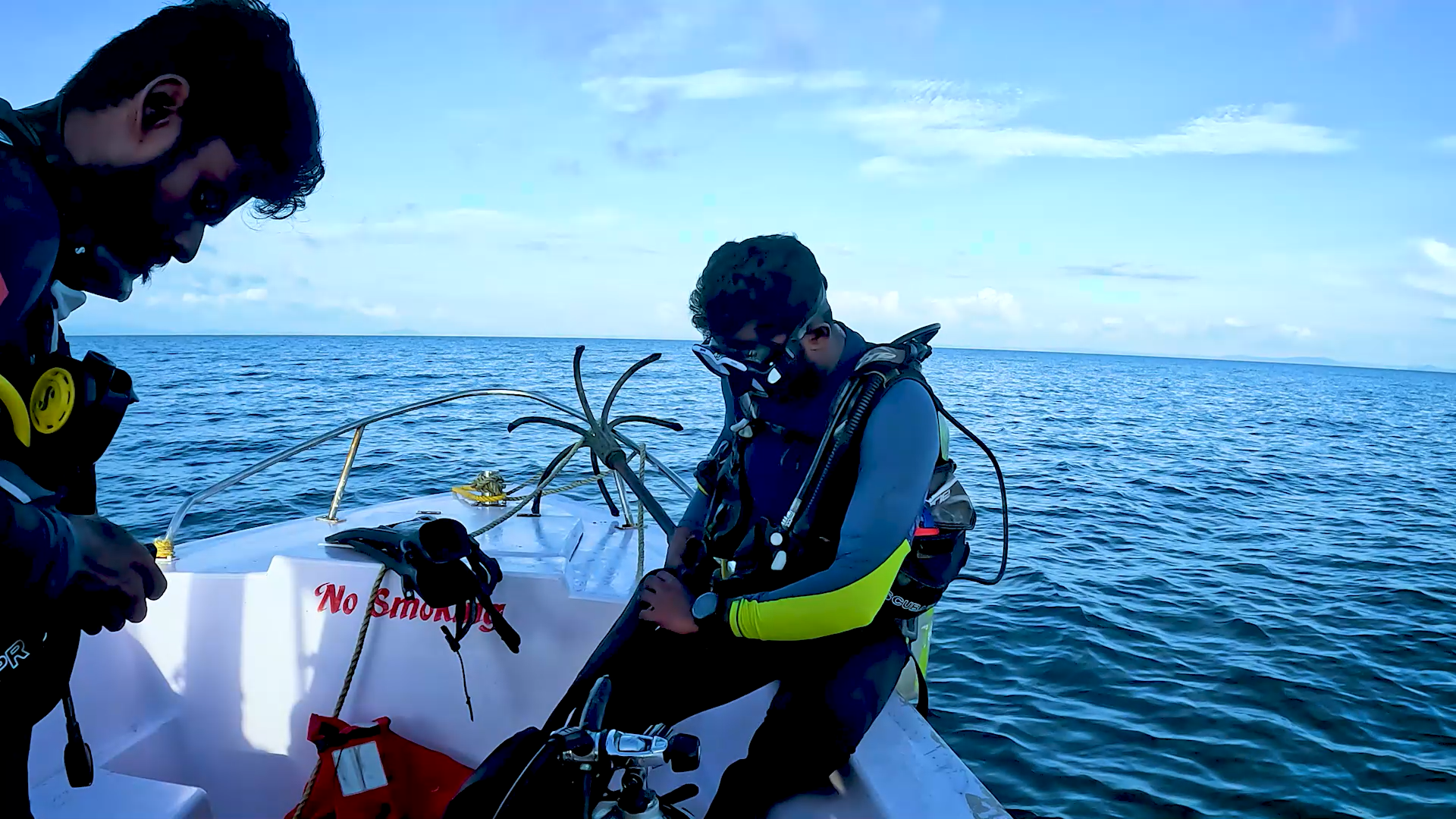
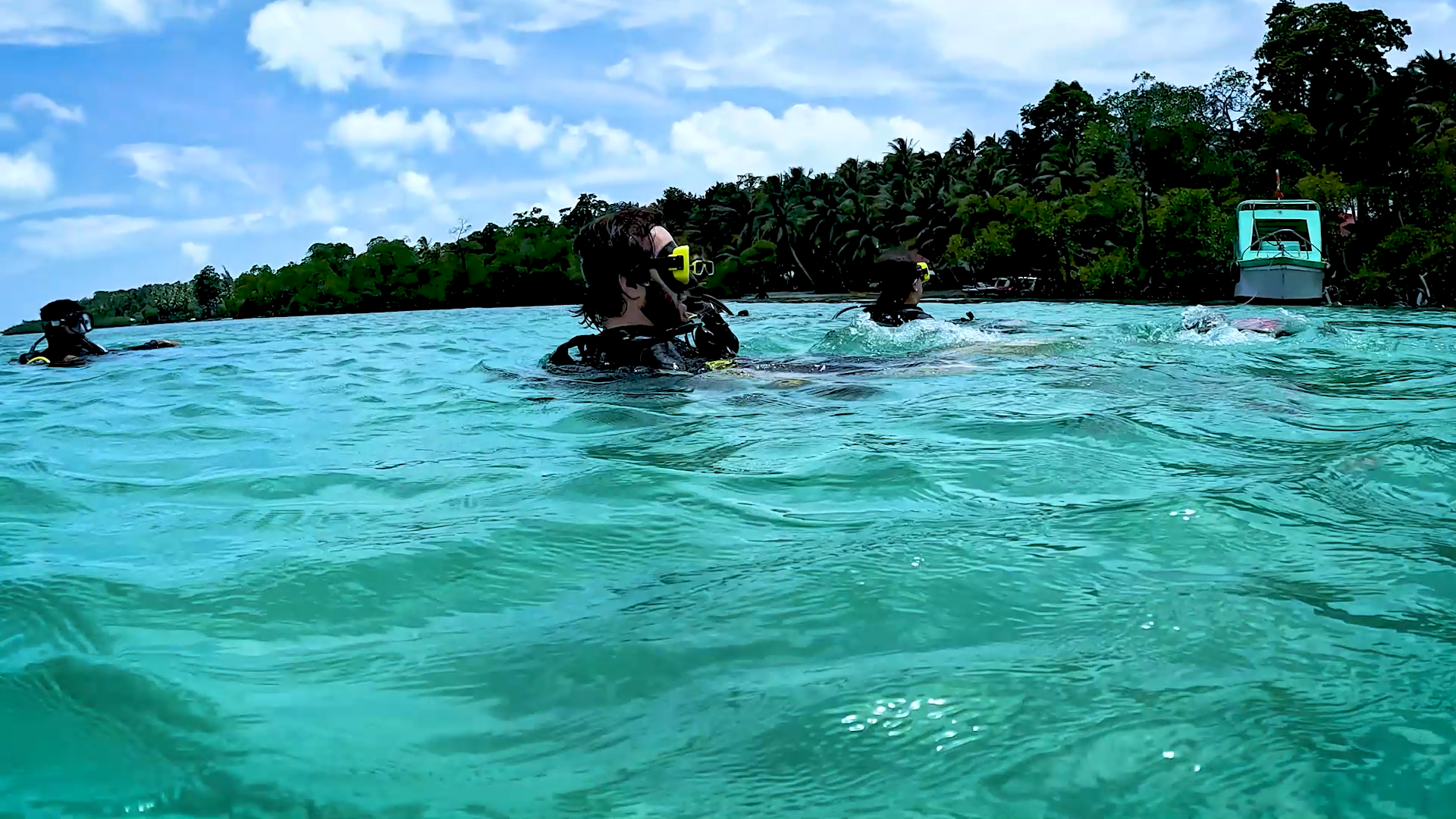
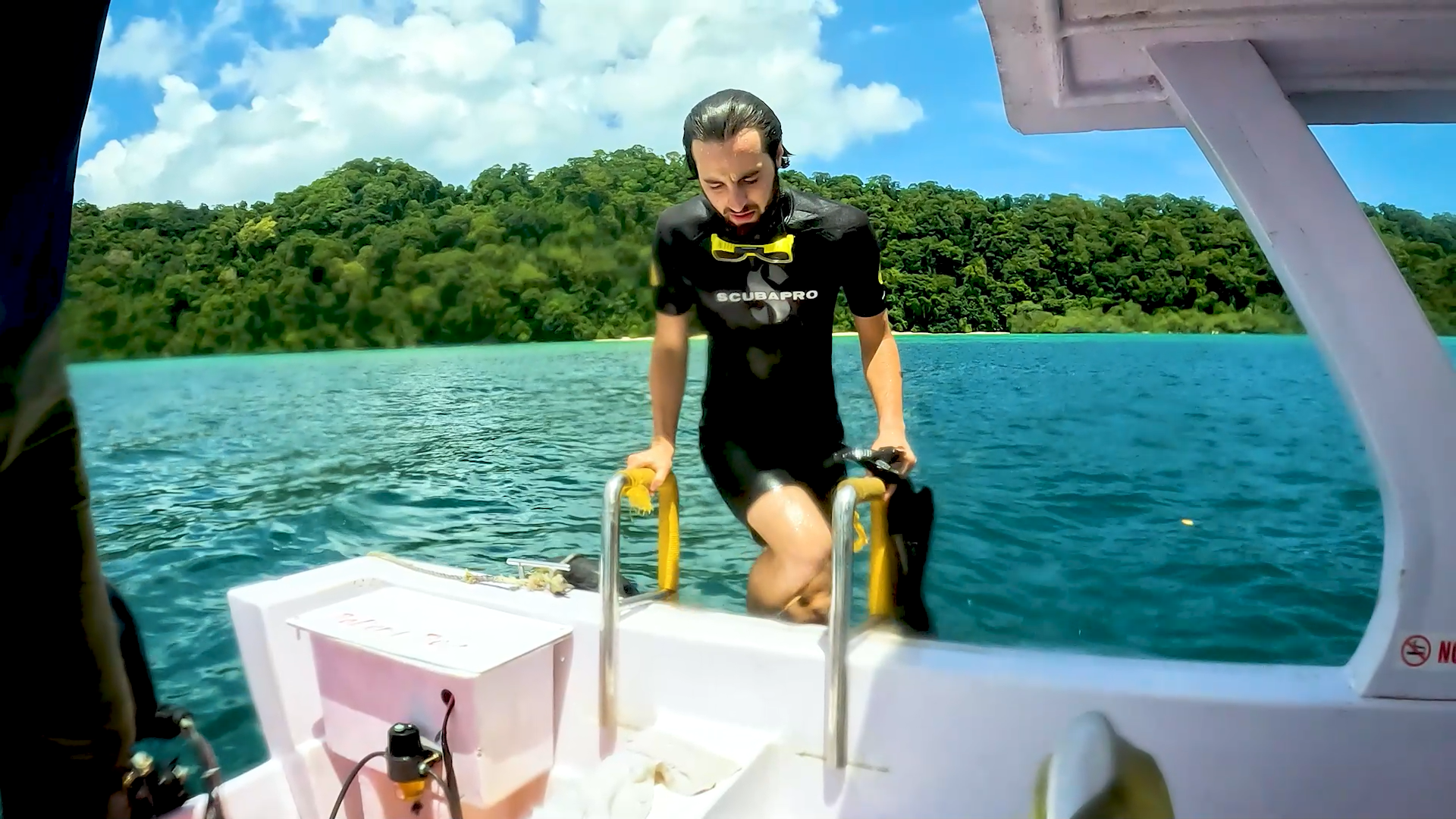
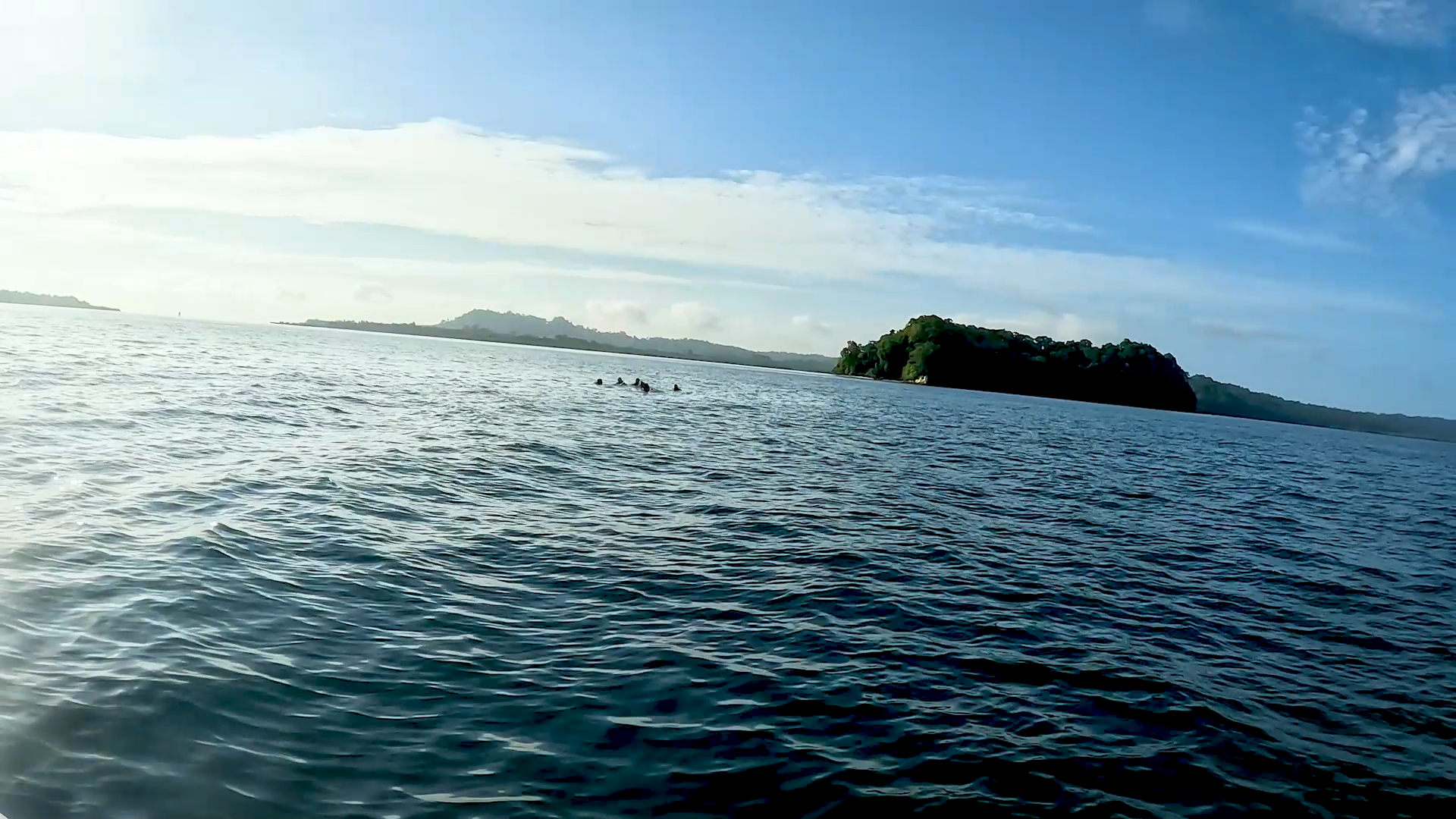
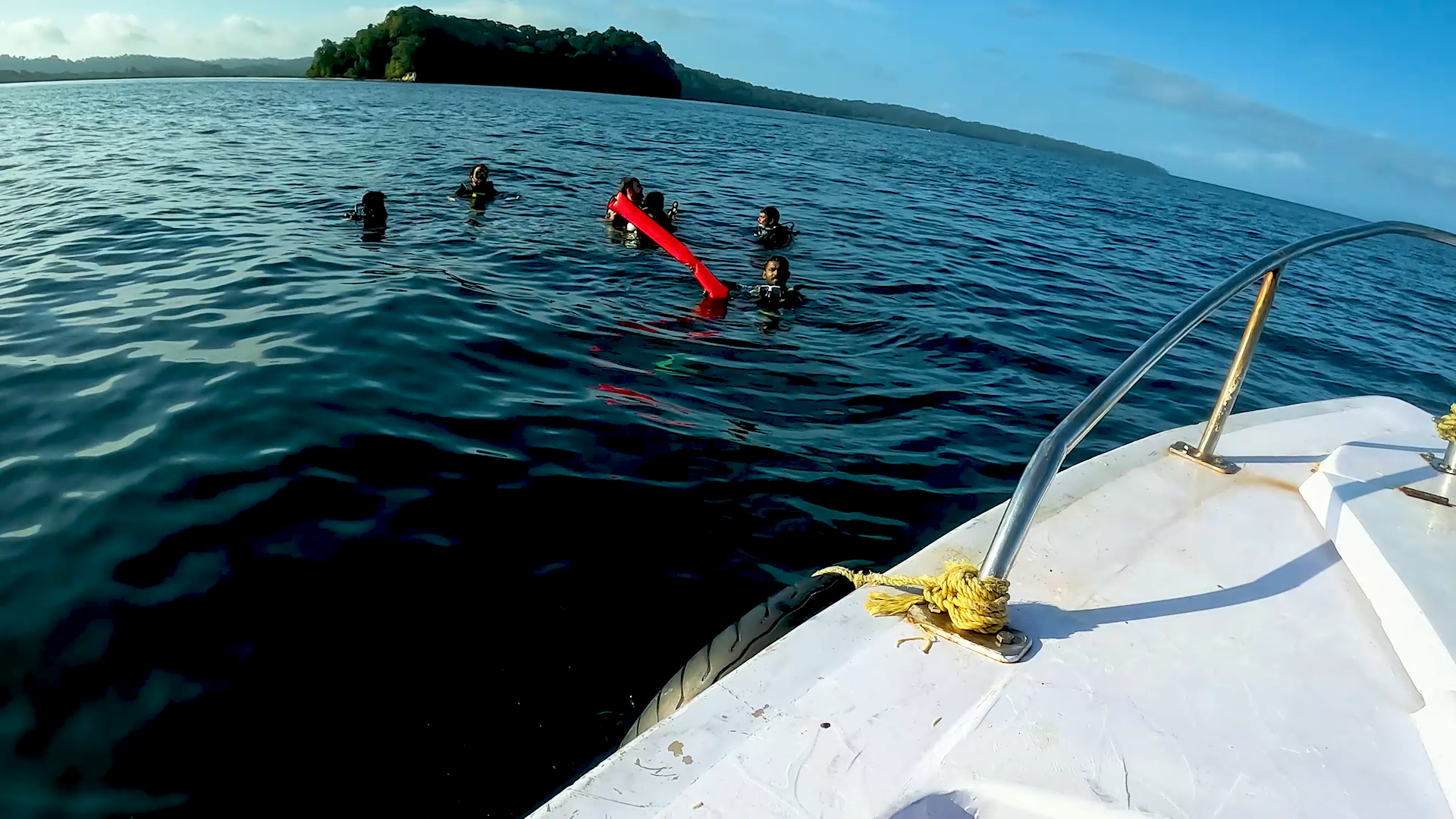










DURATION
- The Advanced Open Water course is conducted over about 3 days
- With one of our in-house PADI instructors
- Certifies you to dive with a buddy to a maximum depth of 30m / 100 feet
You Will Learn How to:
- Explore below 18 meters/60 feet
- Improve your buoyancy
- Use a compass
After some skill practice with your instructor, you'll make five open water dives. There's no exam because this course is truly about having fun and gaining experience.
Download Medical FormThe Advanced Open Water Diver course is all about advancing your skills. You'll practice navigation and buoyancy, try deep diving and make three specialty dives of your choosing (it's like a specialty sampler platter). For every specialty dive you complete, you can earn credit toward PADI specialty certifications.
Some of the Options are as Follows:
- Deep
- Digital Underwater Photography
- Dive Against Debris
- Dry Suit
- Enriched Air Nitrox
- Fish Identification
- Night
- Peak Performance Buoyancy
- Search & Recovery
- Underwater Naturalist
- Underwater Navigation
- Wreck Diver
Taking This course will Help You in:
- Gaining more diving experience
- Practising navigation
- Sampling different types of diving
eLearning time commitment: 6-8 hours
PADI Advanced Water Diver course includes a total of five dives – a deep dive below 18 meters/60 feet, a navigation dive, and three specialty dives. You will gain experience, build confidence, and enhance your diving abilities.
Speciality Dives
These Speciality dives are available almost anywhere:
- Deep
- Fish Identification
- Night
- Peak Performance Buoyancy
- Digital Underwater Imaging
- Search & Recovery
- Underwater Naturalist
- Underwater Navigation
The below-mentioned Speciality dives are not available at all locations. Contact your instructor or dive shop for confirming availability if you are interested in any of these:
- Adaptive Support
- Altitude
- Boat
- Cavern
- Delayed Surface Marker Buoy (DSMB)
- Dive Against Debris
- Diver Propulsion Vehicle (DPV)
- Drift
- Dry Suit
- Enriched Air
- Full Face Mask
- Ice
- Rebreather
- Self-Reliant diving
- Shark Conservation
- Sidemount
- Wreck
Earn your Certification
Step 1 :- Independent Study
PADI e-learning:

Advanced Open Water Diver eLearning includes interactive lessons on 13 popular specialty dives: altitude, boat, digital underwater imaging, drift, dry suit, fish ID, night, buoyancy, search and recovery, underwater naturalist and wreck diving. You'll study deep and navigation diving plus three specialties of your choosing.
eLearning time commitment: 6-8 hours
Step 2 :- With your Instructor
The course includes five dives: a deep dive below 30m, a navigation dive, and three specialty dives. Gain experience, build confidence and discover your abilities.
Prerequisites: Open Water Diver/Junior Open Water Diver (or qualifying certification)
Total time commitment: 2-3 days
Minimum age: 12 years or older
Depth: The maximum depth depends on your age, but maximum depth is up to 30 meters /100 feet.
Step 3 :- Certification Processing
The course will end with your Instructor processing your certification.
COURSE DETAILS :-
| Day | Course Module | Description |
| Day 1 | Underwater Navigation Speciality | Learn to use a compass and natural underwater navigation techniques. |
| Peak Performance Buoyancy | Practice achieving neutral buoyancy and maintaining a specific depth. | |
| Night Dive | Learn night diving using a torch and understand important night dive safety. | |
| Day 2 | Deep Dive | Learn how to use a Recreational Dive Planner for dives deeper than 18 metres. |
| Fish Identification | Understand marine life names and their hand signals for underwater communication. | |
| Certification Process | Review knowledge and complete certification (no exam required). |
DIVE SITES :-
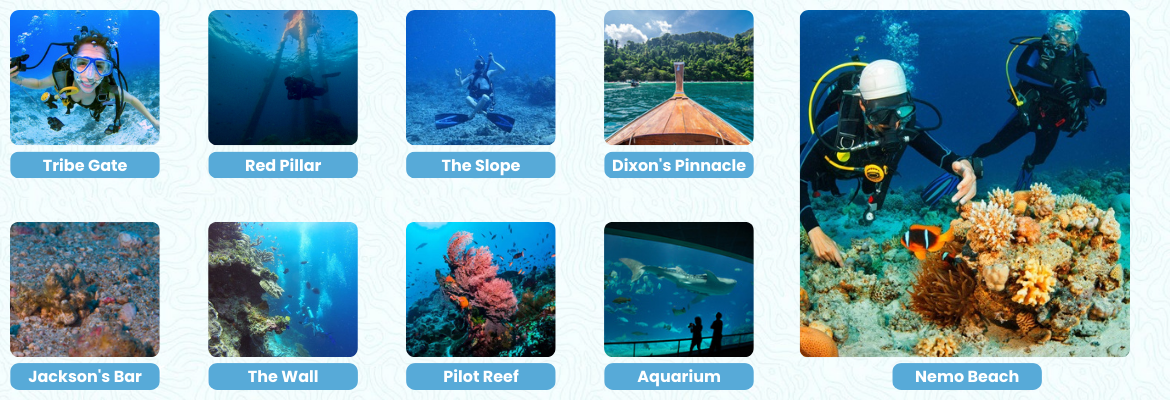
INCLUSION:
- Padi certified instructor charges.
- All scuba pro brand scuba diving equipments charges.
- Boat Charges
- Tea / Coffee & cookies, towels at the time you will be going for the dives.
Course Fee Structure | |||
Course Name | Duration | Description | Cost (INR) |
PADI Advanced Open Water Diver Course | Approximately 3 days | Learn the skills & complete the dive course | 30,000 + 18% GST |
Photography & Videography Charges | |||
Service | Deliverables | Additional Cost | Inclusions |
Underwater Videography & Photography | Complete storyline with daily video shoots for social media use | Cost for this video shoot will be Rs.7,500/- extra apart from the dive course cost. | Daily video shoot (on-ground & underwater). |
Accommodation & Ferry Transfer Charges
Accommodation & Travel Details | ||||
Days | Morning | Afternoon | Evening | Accommodation |
Day 1 | Arrive at Port Blair, meet representative | Ferry to Havelock (MAKRUZZ / NAUTIKA), hotel check-in |
| Havelock Island Beach Resort |
Day 2 | Breakfast | Full day diving Training | Leisure/Rest | Havelock Island Beach Resort |
Day 3 | Breakfast | Full day diving Training | Leisure/Rest | Havelock Island Beach Resort |
Day 4 | Breakfast | Fun Dive in havelock Island & Depart from havelock Island | Leisure/Rest | Havelock Island Beach Resort |
Cost Breakup As Per Hotel Used | ||||||
Stay Details | Room Category | No. of Nights | No. of Adults | Meal Plan | Room Cost Calculation | Total with GST (12%) |
Havelock Island Beach Resort | 01 AC Deluxe Cottage (Garden Facing) | 03 | 02 can stay in the same room | Breakfast | Rs. 7000 × 3 nights × 1 room = Rs. 21,000 | Rs. 23,520/- NET |
Cost of Cab, Ferry Ticket & Entry (Actual Cost with No Hidden Charges) | |||
Component | Rate | Qty | Amount (INR) |
AC Cab for Airport Pickup, Ferry Transfers & Resort Transfers | Rs. 2,000 (flat rate) | 1 | Rs. 2,000 |
Ferry: Port Blair to Havelock Island (Premium Class - Makruzz/Nautika) | Rs. 1,750 | 1 Person | Rs. 1,750 |
Ferry: Havelock Island to Port Blair (Premium Class - Makruzz/Nautika) | Rs. 1,750 | 1 | Rs. 1,750 |
Amount | Subtotal: 5,500 | GST @ 5%: 275 | Total: Rs. 5,775/- |
Total Payable Amount (Accommodation + Ferry Charges): 23,520 + 5,775 = Rs. 29,295
Package Inclusions & Exclusions | |
Inclusions | Exclusions |
Accommodation for 4 nights at Havelock Island Beach Resort as per selected room category. | Accommodation in Port Blair (can be arranged at extra cost). |
All transfers by private AC car at Port Blair & Havelock Island for Airport & Ferry transfers. | Sightseeing in Havelock Island (available at extra cost). |
Ferry Tickets from Port Blair to Havelock Island (Premium class - Makruzz/Nautika). | Any extra excursions not mentioned in the suggested itinerary (extra cost). |
All applicable taxes are included. | Water sports activities not included in the itinerary (available at extra cost). |
| Airfare / Ship fare (not included). |
| Any kind of personal expenses (extra cost). |
| Expenses incurred due to bad weather, natural calamity / flight or ferry cancellation, strike or any—to be borne by the guests. |
| Political unrest—has to be paid by the guest as per actual. |
Connect with Our Dive Experts Today
Top 10 Effects to keep In Mind While Diving
Pick Up a Good Day
Diving is greatly affected by weather conditions. Underwater currents are created by waves and they make it tough to reach the point of immersion. If the conditions are unfavourable, then try another day. No compromise should be made in such a situation.
Get all your Questions Answered
You should not go underwater with doubts in your mind because once you are down, then you will not be able to communicate. It is vital that you know what you should do at any time, the protocols, etc. In order to ensure total safety, ask everything from your instructor whatever is there in your mind.
Breathe
Remember to breathe normally because you have an oxygen cylinder on your back. There may be situations when your nerves or instinct may make you keep from holding your breath while you dive. But just focus on relaxing along with inhaling and exhaling slowly as if you were on the land. Never hold your breath.
Follow your Gut Feeling
Believe your instinct. We, humans, are wise and can perceive, instinctively, when something is not going as planned. In case of doubt, analyse the situation and contact your trainer.
Look but Don’t Touch
Forget what you see in movies or documentaries. The basic rule under the water is to look at everything but touch nothing. Even if you want to. There are different fishes, seaweed, corals, etc. about which you don’t know anything. They may harm you if you interfere with their privacy. Be cautious.
Rise Cautiously
After the dive, do not be in a rush to return to the surface. By hurrying, you can hurt your lungs because of experiencing a sudden change in pressure. You should rise slower than the column of bubbles released with each exhalation of air.
Don’t move too Much
In comparison with air, water is nearly 800 times denser. Thus, any movement means much more effort. Try not to move too much so that you don’t get tired fast, and some air is saved.
Be a good Partner
You only have one another under the water. So try to be a good diving partner always. Know your limitations as well as your partner’s- diving level, health status, underwater communication, equipment status, etc.
Get ready (Physically & Mentally)
Safe diving includes excellent physical fitness and attitude. It is essential that you maintain a positive outlook under the water and also be able to control your nerves in case you come across any trouble.
Check the Equipment
Two pairs of eyes see more than one. So, make sure that you check yours as well as your partner’s equipment before the dive. Also, make sure that the neoprene and glasses adapt properly to your body.
If you have decided to take that leap of faith, then Havelock Island (now known as Swaraj Dweep) is your one-stop destination. The island is known for the best diving spots in India. The azure waters are clear that ensure good visibility. Also, you may spot colourful corals at some sites. The PADI-certified, experienced divers at Aqua Nomads are committed to making sure that you have an experience of a lifetime under the water. The instructor will be with you during the whole time of your dive.
Clients Video
Frequently Asked Questions
-
Q. 1 : How long does it take to complete the PADI Advanced Open Water Course?
Answer: The PADI Advanced Open Water Course usually takes about 2 to 3 days to complete. The duration is entirely dependent on the dive center/resort as well as their scheduling of adventure dives. The overall course comprises 5 adventure dives, inclusive of three elective dives, a necessary underwater navigation dive, and one deep dive. One can complete the knowledge development part of the course in a classroom setting or via eLearning. The exact time required for completing the PADI Advanced Open Water Course can also vary on the basis of factors like student progress, equipment availability, and weather conditions.
-
Q. 2 : Do you have to carry your own scuba diving equipment for taking the PADI Advanced Open Water Course?
Answer: Although it is highly recommended that you carry your own scuba diving equipment for familiarity and comfort, it is not compulsory for you to bring your equipment to take the course. A majority of resorts and dive centers provide the students with rental equipment, encompassing tanks, regulators, masks, fins, and wetsuits. Nonetheless, it is crucial to ensure the equipment fits you right and is in an acceptable condition ahead of using it. If you ask us, we would suggest you think about buying your own fins, snorkel, and mask for better comfort and proper fitting.
-
Q. 3 : How much does a PADI Advanced Open Water Course cost?
Answer: The PADI Advanced Open Water Course cost depends on the resort or dive center along with its location. Generally, the course fee is inclusive of the certification fee, equipment rental, and instructions. Additional expenses may comprise course materials, accommodation, and transportation. We recommend you perform thorough research and comparison of several resorts or dive centers in order to look for the best value for your preferences as well as your budget before you finally pick one.
-
Q. 4 : Can one complete their PADI Advanced Open Water Course via eLearning?
Answer: Yes, PADI provides PADI Advanced Open Water Course through eLearning, which enables individuals to finish their knowledge development part of the course online at their own pace. Individuals are still required to take the five adventure dives under the guidance of a certified PADI instructor at a resort or dive center. The choice of opting for eLearning can be a flexible and convenient option for completing the course, particularly if one has a limited period of time or wishes to get over with their knowledge development part prior to their arrival on the dive spot.
-
Q. 5 : Do you have to be a proficient swimmer to take the PADI Advanced Open Water Course?
Answer: The answer is no. Even though being proficient in swimming can turn out to be greatly helpful for scuba diving, one does not necessarily have to be an expert in swimming in order to take the PADI Advanced Open Water Course. The course is entirely focused on diving knowledge and skills and you will usually be utilizing fins along with other equipment to pass through the water. Nonetheless, you must be comfortable in the water and be able to swim for short lengths if required.
-
Q. 6 : What is the key difference between the PADI Rescue Diver Course and PADI Advanced Open Water Course?
Answer: While both PADI Rescue Diver Course and the PADI Advanced Open Water Course are scuba diving certification courses, the two are focused on varying areas of diving. The latter is created to aid certified divers to obtain more skills and experience in various areas of diving, like underwater navigation and deep diving. Contrary to this, the first is focused on developing emergency response techniques and rescue skills, like undertaking rescue scenarios, administering first aid, and identifying and responding to diving accidents. Essentially, the PADI Rescue Diver Course is known to be a more advanced course as compared to the PADI Advanced Open Water Course.
-
Q. 7 : Can you take the PADI Advanced Open Water Course even if you have a medical condition?
Answer: The answer to the question is dependent on the kind of medical condition you have and the extent to which it affects your driving abilities. Prior to taking a scuba diving course, including PADI Advanced Open Water Course, you will be required to fill out a medical questionnaire and obtain clearance from a physician if required. While some medical conditions need additional accommodation or precautions, others may prevent you from performing the sport. Remember, never lie about your medical condition just for the sake of doing the course - it can turn out to be extremely risky and has the potential to harm you. Always be honest about the same and discuss all your concerns with your PADI instructor and your doctor before you participate in the course.
-
Q. 8 : What sort of certification will you get after the completion of the PADI Advanced Open Water Course?
Answer: Once you are done with the PADI Advanced Open Water Course, you will get the PADI Advanced Open Water Course certification. It will enable you to take a plunge to the highest depth of 100 feet or 30 meters with a certified companion. The same is recognized across the globe and can be utilized for partaking in additional advanced diving courses as well as exploring novel diving destinations and sites.
-
Q. 9 : What is covered in the PADI Advanced Open Water Course?
Answer: The PADI Advanced Open Water Course covers a wide array of knowledge and skills associated with diving. The necessary Deep Dive is concentrated on deep diving techniques, such as proper buoyancy control, emergency decompression procedures, and nitrogen narcosis management. The Underwater Navigation Dive includes navigation techniques, like natural navigation and the use of a compass. The elective dives can comprise topics like search and recovery, peak performance buoyancy, drift diving, wreck diving, and night diving. The course further consists of knowledge development on dive safety, dive planning, and dive theory.
Diving Sites in Port Blair
Diving Sites in Havelock Island
Diving Sites in Neil Island
Talk to our Scuba Diving Expert
X